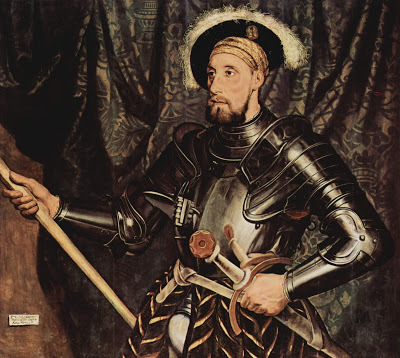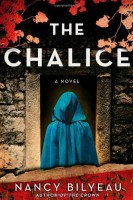Nicholas Carew: The Fatal Friendship of Henry VIII
Those who study the Tudor era are often astounded by how Henry VIII could spurn, exile or kill his wives, sometimes without much evidence of a conscience. But it was just as dangerous to be the king's friend.

Sir Nicholas Carew was placed in the household of Prince Henry at age six. They were close friends for almost forty years, sharing a passion for jousting. Carew was knighted by 1517, made a Knight of the Garter, and held the important post of Master of Horse. He was a member of the Privy Council and served as a trusted diplomat. His beautiful wife, Elizabeth, was rumored to be the king's mistress before Nicholas married her. Henry VIII had given her some jewelry, including diamonds and pearls.
Although related to Anne Boleyn, Nicholas Carew had sympathy for Katherine of Aragon and was fond of Princess Mary. Carew was a key member of the faction that worked with Thomas Cromwell to turn the king against Anne and replace her with Jane Seymour in 1536.
In 1538 several of the king's relatives on his mother's Yorkist side were accused of plotting against the king. The evidence was very weak; nonetheless, Henry Courtenay, marquis of Exeter, and Henry Pole, Lord Montagu, were arrested and executed. (Pole's mother, the countess of Salisbury, was beheaded in 1541. His young son disappeared in the Tower, never to be seen again. Courtenay's son was imprisoned until the reign of Queen Mary.)
Carew was disturbed by the arrests in the "Exeter Conspiracy" and the methods Cromwell used to destroy these men he'd known nearly as long as Henry VIII. He said, "I marvel greatly that the indictment against the lord marquis was so secretly handled and for what purpose, for the like was never seen." Around the same time Henry VIII and Carew quarreled over something, and Carew told his old friend "an answer true rather than discreet."
On this "evidence," Carew was arrested. On Jan. 14, 1539, he was indicted, and on March 3rd he was taken to Tower Hill for execution, as had been Henry Courtenay and Henry Pole before him.
In his speech to the crowd, "he made a goodly confession, both of his folly and his superstitious faith." And with that, the king's oldest friend was killed.
--------------------------------------------------------------------------------------------------------
The Exeter Conspiracy is central to the story in my second novel, The Chalice.

Published on January 14, 2016 11:26
No comments have been added yet.



